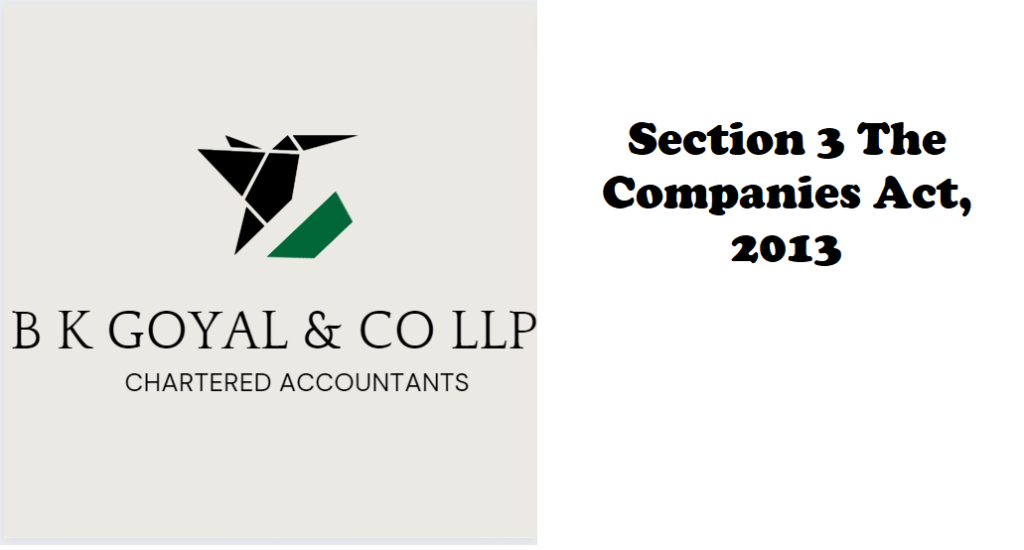Formation of Company
(1) A company may be formed for any lawful purpose by—
(a) seven or more persons, where the company to be formed is to be a public company;
(b) two or more persons, where the company to be formed is to be a private company; or
(c) one person, where the company to be formed is to be One Person Company that is to say, a private company,
by subscribing their names or his name to a memorandum and complying with the requirements of this Act in respect of registration:
Provided that the memorandum of One Person Company shall indicate the name of the other person, with his prior written consent in the prescribed form, who shall, in the event of the subscriber’s death or his incapacity to contract become the member of the company and the written consent of such person shall also be filed with the Registrar at the time of incorporation of the One Person Company along with its memorandum and articles:
Provided further that such other person may withdraw his consent in such manner as may be prescribed:
Provided also that the member of One Person Company may at any time change the name of such other person by giving notice in such manner as may be prescribed:
Provided also that it shall be the duty of the member of One Person Company to intimate the company the change, if any, in the name of the other person nominated by him by indicating in the memorandum or otherwise within such time and in such manner as may be prescribed, and the company shall intimate the Registrar any such change within such time and in such manner as may be prescribed:
Provided also that any such change in the name of the person shall not be deemed to be an alteration of the memorandum.
1&2[(2) A company formed under sub-section (1) may be either—
(a) a company limited by shares; or
(b) a company limited by guarantee; or
(c) an unlimited company.]
Practice area's of B K Goyal & Co LLP
Income Tax Return Filing | Income Tax Appeal | Income Tax Notice | GST Registration | GST Return Filing | FSSAI Registration | Company Registration | Company Audit | Company Annual Compliance | Income Tax Audit | Nidhi Company Registration| LLP Registration | Accounting in India | NGO Registration | NGO Audit | ESG | BRSR | Private Security Agency | Udyam Registration | Trademark Registration | Copyright Registration | Patent Registration | Import Export Code | Forensic Accounting and Fraud Detection | Section 8 Company | Foreign Company | 80G and 12A Certificate | FCRA Registration |DGGI Cases | Scrutiny Cases | Income Escapement Cases | Search & Seizure | CIT Appeal | ITAT Appeal | Auditors | Internal Audit | Financial Audit | Process Audit | IEC Code | CA Certification | Income Tax Penalty Notice u/s 271(1)(c) | Income Tax Notice u/s 142(1) | Income Tax Notice u/s 144 |Income Tax Notice u/s 148 | Income Tax Demand Notice
Company Registration Services in major cities of India
Company Registration in Jaipur | Company Registration in Delhi | Company Registration in Pune | Company Registration in Hyderabad | Company Registration in Bangalore | Company Registration in Chennai | Company Registration in Kolkata | Company Registration in Mumbai | Company Registration in India | Company Registration in Gurgaon

